- Home
- Brian Lumley
Necroscope® Page 9
Necroscope® Read online
Page 9
Actually, it wasn’t a bad idea. The occasional old-timer, a pensioned-off survivor of the colliery, would get in there to sit with his dog and stick, chewing baccy or drawing on an old pipe—and spitting, of course. Rotten lungs were a legacy of the pit; rotten lungs and spines like eggshells. But apart from the old lads it was usually quiet in there, away from the village’s centre, the pubs and cinema, the main road. Oh, when the conkers began to fall there’d be kids to contend with, of course; what’s a conker without its child on the end of a length of cord? That was a nice thought and Hannant smiled at it. Someone had once said that from a dog’s point of view, a human was a thing to throw sticks. So why shouldn’t a horse chestnut have a point of view? Which might well be that boys were for whirling them on strings—and for splitting them wide open. One thing seemed certain, boys weren’t for learning maths!
Hannant showered, towelled himself slowly, methodically dry (hurrying would only produce more sweat), put on baggy grey flannels and an open-neck shirt, took up his briefcase and left his home. He walked out of the estate, into the graveyard and along the broad gravel path which bisected it. Squirrels played in the high branches of the brandy-glass-shaped trees, shaking loose the occasional leaf. The sun’s rays came slanting down from across the low hills to the west, where that great brazen ball seemed permanently suspended, as if it never would relinquish the day to night. The day had been beautiful; the evening, despite the heat, was incredibly beautiful; and both of them (Hannant weighed the heavy briefcase in his hand) would have been quite wasted. Or if not wasted, spent fruitlessly—if there was a difference. He snorted mirthlessly, picturing young Johnnie Miller in a couple of years’ time, “down the pits,” hewing coal, relieving his boredom and passing his shift by calculating surface areas of circles. What the hell was the point of it?
And as for kids like Harry Keogh—poor little sod—why, he had neither muscles for the mine nor much of a mind for anything else. Well, perhaps a mind, but if so a mind like an iceberg, only its tip showing. As for how much of it lay under the surface—who could say? Hannant only wished he could find a way to capsize the little bugger, while there was still time … He had this feeling about Keogh: that whatever he was going to do or going to be should begin to show in him now. Like watching a strange seed throw up a shoot, and waiting to see what the flower would be.
But talk of the devil … wasn’t that Keogh there now, sitting on an old slab in the shade of a tree, his back to the mossy headstone? Yes, it was Keogh; the sun, glinting off his specs where it struck through the hanging foliage, had given him away. He sat there, a book open in his lap, sucking on the chewed stem of a pencil, his head back, lost in thought. And Jimmy Collins nowhere in sight; he’d be at football practice with the rest of the team, up in the recreation ground. But Keogh—he wasn’t a member of any sort of team.
Suddenly Hannant felt sorry for him. Sorry, or … guilty? Hell, no! Keogh had got away with it for far too long. One of these days he’d go off like that—out of himself—and never make it back again! And yet—
Hannant sighed, let his feet wend him around the plots and between the rows of headstones, along ill-defined paths to where the boy sat. And as he got closer he could see that Harry was once again lost in his own thoughts, daydreaming away in the cool shade of the tree. For some probably irrational reason this made Hannant feel angry—until he saw that the book in Keogh’s lap was his maths homework book, which made it seem that he was at least attempting to work out his punishment.
“Keogh? How’s it going?” Hannant said, seating himself on the same slab. This corner of the cemetery wasn’t unknown to the maths teacher; he’d walked here and sat here himself on many, many occasions. In fact it wasn’t that he was the intruder, rather that Keogh was the odd-man-out here. But he doubted if the boy knew or would even understand that.
Harry took the pencil out of his mouth, looked at Hannant, unexpectedly smiled. “Hello, sir … Er, sorry?”
Er, sorry! Hannant had been right, the kid just hadn’t been there. King of the daydreamers. The Secret Life of Harry Keogh! “I asked you,” Hannant tried not to growl, “how it was going?”
“Oh, it’s all right, sir.”
“Drop the ‘sir,’ Harry. Save that for the classroom. Out here it makes conversation difficult. What about the problems I gave you? They’re what I meant by how’s it going.”
“The homework questions? I’ve done them.”
“What, here?” Hannant was surprised; and yet thinking about it, it seemed entirely fitting.
“It’s quiet here,” Harry answered.
“Would you like to show me?”
Harry shrugged. “If you like.” He passed over the workbook.
Hannant checked it, was doubly surprised. The work was very neat, almost immaculate. There were two answers, both correct if his memory served him right. Of course the working would be equally important, but he didn’t check that just yet. “Where’s the third question?”
Harry frowned. “Is that the one with the grease-gun, where—?” he began.
But Hannant impatiently cut him off: “Let’s not piss about, Harry Keogh. There are only three questions out of the ten which could possibly qualify. The rest concern themselves with boxes, not circles, not cylinders. Or am I being unjust? The book’s a new one to me, too. Give it here.”
Harry lowered his head a little, bit his lip, passed the book over. Hannant flipped pages. “The grease-gun,” he said. “Yes, this one,” and he stabbed at the page with a forefinger. It showed this diagram:
The measurements were internal; barrel and nozzle were cylindrical, full of grease; squeezed dry, how long would the line of grease be?
Harry looked at it. “Didn’t think it qualified,” he said.
Hannant felt angry. Two out of three wasn’t good enough. Three wrong answers would almost be better than this crap. “Why don’t you just say it was too difficult?” he tried not to bark. “I’ve had all I can take of bluff for one day. Why not simply admit you can’t do it?”
Suddenly the boy looked sick. His face shone with sweat and his eyes seemed a little glazed through the lenses of his spectacles. “I can do it,” he slowly answered; then, more quickly, with acid precision: “An idiot could do it! I didn’t think it qualified, that’s all.”
Hannant believed his ears must be deceiving him, that he’d misunderstood the boy’s answer. “What about the formula?” he rasped.
“Not required,” said the other.
“Shit, Harry! It’s pi times the radius squared times length equals contents. That’s all you need to know. Look—” and he quickly scribbled in the workbook:
He gave Harry the pencil back, said: “There. After that most of it just cancels itself out. The divisor is of course the surface area of a cross-section of the line of grease.”
“A waste of time,” said Harry, in such a way that Hannant knew it wasn’t just rank insubordination, indeed in a voice which hardly seemed like Harry Keogh’s voice at all. There was authority in it. For a moment … Hannant almost felt intimidated! What was going on behind the kid’s glasses, inside his skull? What was the meaning in his not-altogether-there eyes?
“Explain yourself,” Hannant demanded. “And make it good!”
Harry glanced at the diagram, not at the teacher’s suggested solution. “The answer is three and a half feet,” he said. And again there was the same authority in his voice.
As Hannant had said, the text-book was new to him; he hadn’t properly worked through it himself yet. But just looking at Keogh he’d be willing to bet the kid was right. Which could only mean—
“You went back to the classroom with Collins after the beach,” he accused. “I’d told him to lock up, but before he did you opened my desk, looked up the answers in the answer book there. I wouldn’t have believed it of you, Keogh, but—”
“You’re wrong,” Harry cut him short in that same flat, emotionless, precise voice. Now he stabbed at the diagram with his fin
ger. “Look at it for yourself. The first two questions required formulas, yes, but not this one. Given a diameter to four decimals, what’s the surface area? That requires a formula. Given a surface area to four decimals, what’s the radius? That requires almost the same formula in reverse. But this? Listen:
“The barrel’s diameter is three times greater than the nozzle’s. The circle’s area is therefore nine times greater. The barrel’s length is three times greater. Three times nine is twenty-seven. The barrel contains twenty-seven times as much grease as the nozzle. Barrel and nozzle together therefore contain twenty-eight nozzles’ worth. The nozzle is one and a half inches long. Twenty-eight times one and a half equals forty-two. And forty-two inches equals three and a half feet, sir.…”
Hannant stared at the boy’s expressionless, almost vacant face. He stared at the diagram in the book. His mind whirled and it seemed that a cold wind blew on his spine, causing him to shiver. What the hell—? For Christ’s sake, he was the maths teacher, wasn’t he? But there was no fighting Keogh’s logic. The question hadn’t needed formulae, hadn’t needed maths at all! It was mental arithmetic—to someone who understood circles. To someone who could see past the trees to the wood. And of course his answer was, must be, right! If Hannant threw his formulae away, he would have been able to do it too—with a little thought. But Keogh’s application had been instantaneous. His scorn had been real!
And now Hannant knew that if he didn’t play this right he’d probably lose this boy right here and now. He also knew that if that happened, he wasn’t the only one who would lose. There was a mind in there, and it had … hell, potential! Whatever Hannant’s confusion, however great, he must somehow retain his authority.
He forced a grin, said: “Very good! Except I wasn’t just checking out your IQ, Harry Keogh. It was to see whether or not you knew your formulae. But now you’ve really puzzled me. Seeing as how you’re so smart, how come your classwork has always been so lousy?”
Harry stood up. His movements were stiff, automatic almost. “Can I go now, sir?”
Hannant stood up too, shrugged and stepped aside. “Your free time’s your own,” he said. “But when you get five minutes, you might still bone up on your formulae.”
Harry walked off, his back straight, movements stiff. A few paces away he turned and looked back. A beam of sunlight striking through the trees caught his glasses, turning his eyes to stars. “Formulae?” he said in that new, strange voice. “I could give you formulae you haven’t even dreamed of.”
And as the cold chill struck at his spine once more, Hannant somehow knew for a certainty that Keogh wasn’t just bragging.
Then … the maths master wanted to shout at the boy, run at him, even strike him. But his feet seemed rooted to the spot. All of the energy had gone out of him. He’d lost this round—completely. Trembling, he sat down again on the slab, leaning back weakly against the headstone as Harry Keogh walked away. He leaned there for a moment—then jerked forward, started upright, threw himself away from the grave. He tripped and sprawled on the close-cropped grass. Keogh was disappearing, lost among the markers.
The evening was warm—no, it was damned hot, even now—but George Hannant felt cold as death. It was in the air, in his heart, freezing him. Here, in this place, of all places. And it came to him now just exactly where and when he had heard someone speak like Harry Keogh before, with his authority, his precision and logic. Thirty long years ago, almost, when Hannant had been little more than a lad himself. And the man had been more than his peer. He had been his hero, almost his god.
Still trembling he got to his feet, picked up Keogh’s books and put them in his briefcase, then backed carefully away from the grave.
Cut into the headstone, lichened over in parts, the legend was simple and George knew it by heart:
JAMES GORDON HANNANT
13 June 1875—11 Sept. 1944
Master at Harden Boys’ School
for Thirty Years, Headmaster
for Ten, now he Numbers
among the Hosts
of Heaven.
The epitaph had been the Old Man’s idea of a joke. His principal subject, like that of his son after him, had been maths. But he had been far better at it than George would ever be.
CHAPTER THREE
There was one short maths lesson first thing on the following morning, but before then George Hannant had done some soul-searching, a little rationalizing; so that by the time all the kids were working away and the room was quiet bar the scratching of pens and rustling of papers, he was satisfied that he had the right answer to what had seemed the night before an incident or occurrence of some moment. Keogh was obviously one of those special people who could get right down to the roots of things, a thinker as opposed to a doer. And a thinker whose thoughts, while they invariably ran contrary to the general stream, nevertheless ran true.
If you could get him interested in a subject deeply enough to make him want to do something with it, then he’d doubtless do something quite extraordinary. Oh, he would still make errors in simple addition and subtraction—two plus two could still on occasion come out five—but solutions which were invisible to others would be instantly obvious to him. That was why Hannant had seen in the lad a likeness to his own father; James G. Hannant, too, had had that same sort of intuitive knack, had been a natural mathematician. And he too had had little time for formulae.
And equally obvious to Hannant was the fact that he had indeed fanned some spark into flame in Keogh’s brain, for it was his pleasure to note that the boy seemed to be working quite hard—or at least he had been, for the first fifteen minutes or so of the period. After that—well, of course, he was daydreaming again. But when Hannant crept up behind him—lo and behold!—the questions he’d set were all answered, and correctly, however insubstantial the working. It would be interesting later in the week, when they got onto basic trigonometry, to see what Keogh would do with that. Now that the circle held little of mystery for him, perhaps he’d take an interest in the triangle.
But there was still something which puzzled George Hannant and for the answer to that he must now go to Jamieson, the headmaster. Leaving the boys to work alone for a few minutes—with the customary warning about their behaviour in his absence—be went to the head’s study.
“Harry Keogh?” Howard Jamieson seemed a little taken aback. “How did he do in the Technical College examination?” He took out a slim file from one of his desk drawers, flipped through it, looked up. “I’m afraid Keogh didn’t take the examination,” he said “Apparently he was down with hay fever or some such. Yes here it is: hay fever, three weeks ago; he had two days off school. Unfortunately the exams took place in Hartlepool on the second day of Keogh’s absence. But why do you ask, George? Do you think he’d have stood a chance?”
“I think he’d have sailed it,” Hannant answered, frank to the point of being blunt.
Jamieson seemed surprised. “Bit late in the day isn’t it?”
“To worry about it? I suppose it is.”
“No, I meant this interest in Harry Keogh. I didn’t know you much approved of him. Wait—” He took out another file, a thicker one, this time from a cabinet. “Last year’s reports,” he said, checking through the file. And this time he wasn’t at all surprised. “Thought so. According to this none of your colleagues here give Keogh a cat in hell’s chance at anything—and that includes you, George!”
“Yes,” Hannant’s neck reddened a little, “but that was last year. Also, the Technical College exams are aimed more at basic intelligence than academic knowledge. If you were to give our Harry Keogh an IQ test I think you’d be in for a surprise. Where maths is concerned, anyway. It’s all instinct, all intuition—but it’s there sure enough.”
Jamieson nodded. “Well, it’s something when a master takes more than a grudging interest in a Harden boy,” he said. “And that’s not to put anyone down, not even the kids themselves—but they do have a hell of a handicap here, in
background and environment, I mean. Do you know how many of our boys got through that exam, by the way? Three! Three out of that age group—which is to say one in sixty-five!”
“Four, if Harry Keogh had taken it.”
“Oh?” Jamieson wasn’t convinced. But he was impressed, at least. “All right,” he said, “let’s assume you’re right about the maths side of it. And in fact you are right that the test is a measure of basic intelligence rather than knowledge assimilated parrot-fashion. So what about the other subjects? According to these reports Keogh is a habitual failure in just about any subject you care to mention! Bottom of his class in many of them.”
Hannant sighed, nodded, said: “Look, I’m sorry I’ve wasted your time on this one. Anyway, the question hardly arises since he didn’t sit the exam in the first place. It’s just that I feel it’s a shame, that’s all. I think the kid has potential.”
“Tell you what,” said Jamieson, coming round his desk and moving towards the door with his hand on Hannant’s shoulder. “Send him to see me during the afternoon. I’ll have a word with him, see what I think. No, wait—maybe I can be a little more constructive than that. Instinctive or intuitive mathematician, is he? Very well—”
He returned to his desk, took a pen and quickly scribbled something on a blank sheet of A4. “There you go,” he said. “See what he makes of that. Let him work at it through the lunch break. If he comes up with an answer, then I’ll see him and we’ll see how we go from there.”
Hannant took the sheet of A4 and went out into the corridor, closing the door behind him. He looked at what the head had written, shook his head in disappointment. He folded the sheet and pocketed it, then took it out again, opened it and stared at it. On the other hand … maybe it was exactly the sort of thing Keogh could handle. Hannant was sure that he could do it—with a bit of thought and a spot of trial and error—but if Keogh could work it out, then they’d be on to something. His case for the boy would be proven. In the event Keogh failed, then Hannant would simply stop worrying about him. There were other kids who were equally deserving of his attention, he was sure.…

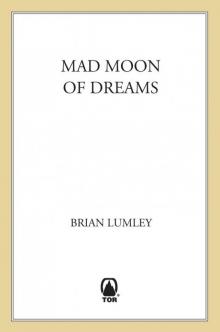 Mad Moon of Dreams
Mad Moon of Dreams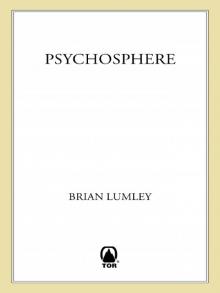 Psychosphere
Psychosphere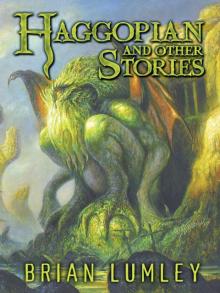 Haggopian and Other Stories
Haggopian and Other Stories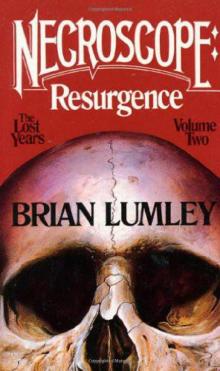 Resurgence_The Lost Years_Volume Two
Resurgence_The Lost Years_Volume Two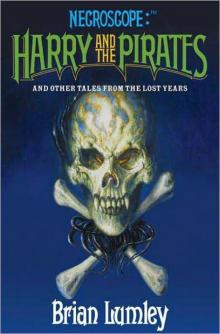 Necroscope: Harry and the Pirates: And Other Tales From the Lost Years
Necroscope: Harry and the Pirates: And Other Tales From the Lost Years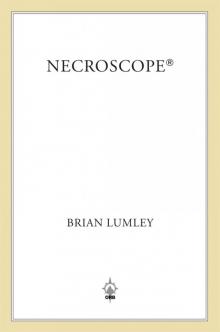 Necroscope®
Necroscope®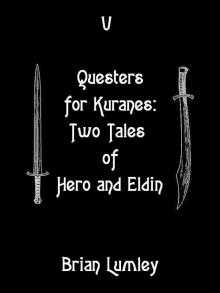 Dreamlands 5: Questers for Kuranes: Two Tales of Hero and Eldin
Dreamlands 5: Questers for Kuranes: Two Tales of Hero and Eldin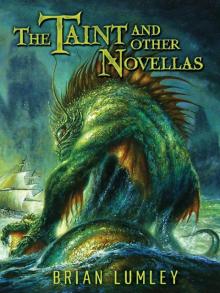 The Taint and Other Novellas: Best Mythos Tales Volume 1
The Taint and Other Novellas: Best Mythos Tales Volume 1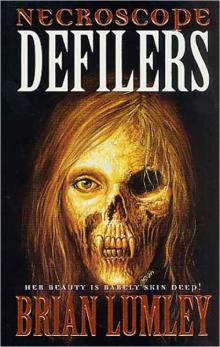 Necroscope: Defilers
Necroscope: Defilers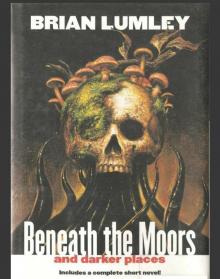 Beneath the Moors and Darker Places
Beneath the Moors and Darker Places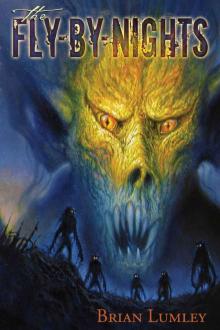 The Fly-By-Nights
The Fly-By-Nights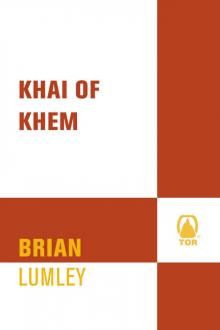 Khai of Khem
Khai of Khem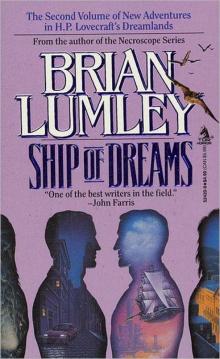 Ship of Dreams
Ship of Dreams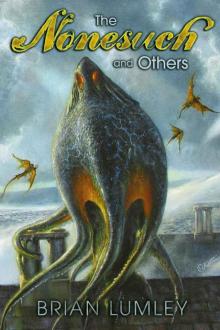 The Nonesuch and Others
The Nonesuch and Others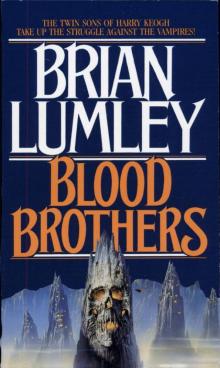 Blood Brothers
Blood Brothers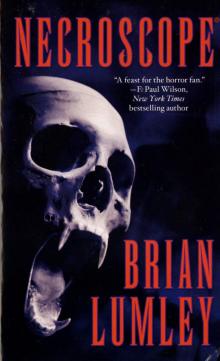 Necroscope
Necroscope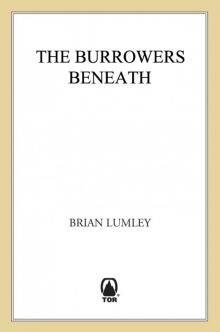 The Burrowers Beneath
The Burrowers Beneath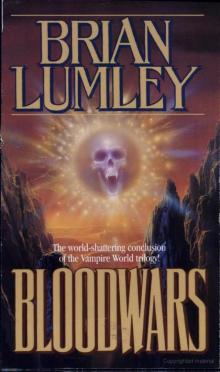 Bloodwars
Bloodwars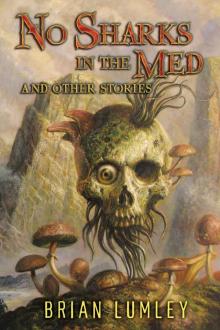 No Sharks in the Med and Other Stories
No Sharks in the Med and Other Stories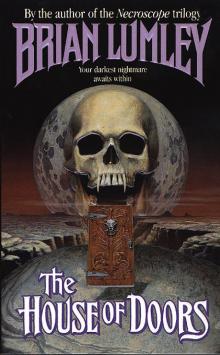 The House of Doors - 01
The House of Doors - 01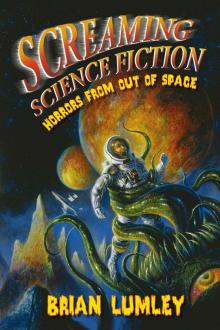 Screaming Science Fiction
Screaming Science Fiction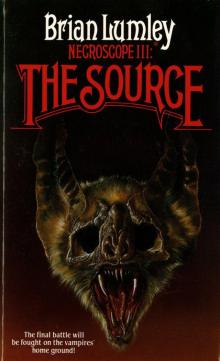 Necroscope III: The Source
Necroscope III: The Source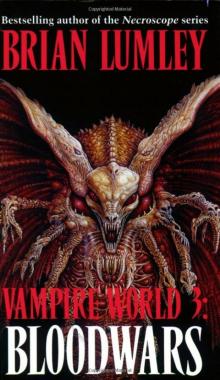 Vampire World I: Blood Brothers
Vampire World I: Blood Brothers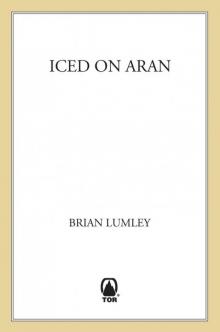 Iced on Aran
Iced on Aran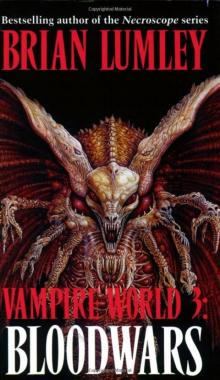 Necroscope: Invaders
Necroscope: Invaders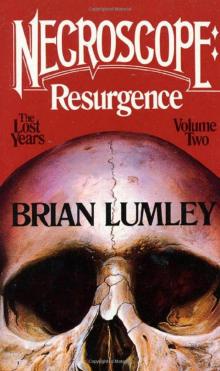 Necroscope: The Lost Years
Necroscope: The Lost Years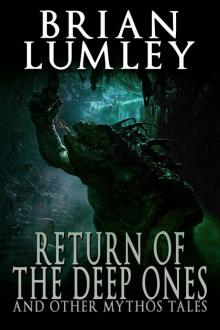 Return of the Deep Ones: And Other Mythos Tales
Return of the Deep Ones: And Other Mythos Tales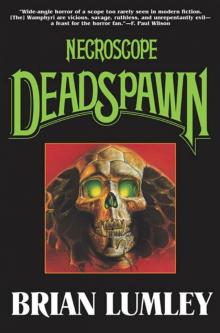 Necroscope V: Deadspawn
Necroscope V: Deadspawn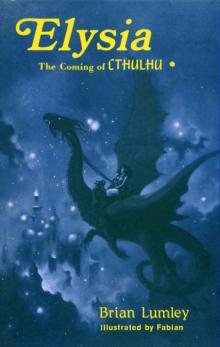 Titus Crow, Volume 3: In the Moons of Borea, Elysia
Titus Crow, Volume 3: In the Moons of Borea, Elysia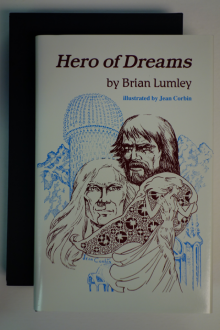 Hero of Dreams
Hero of Dreams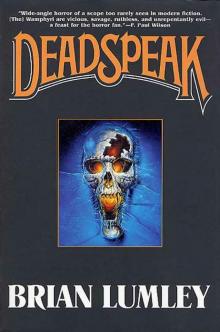 Necroscope IV: Deadspeak
Necroscope IV: Deadspeak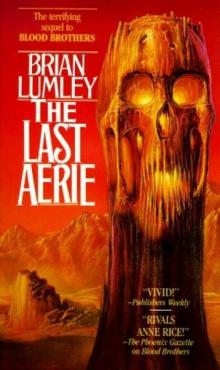 The Last Aerie
The Last Aerie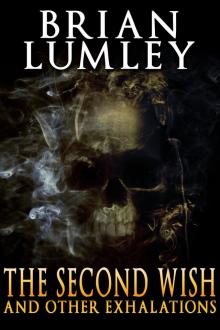 The Second Wish and Other Exhalations
The Second Wish and Other Exhalations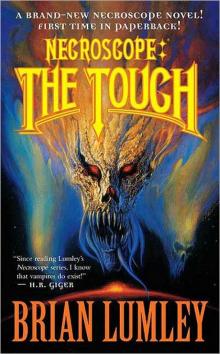 Necroscope: The Touch
Necroscope: The Touch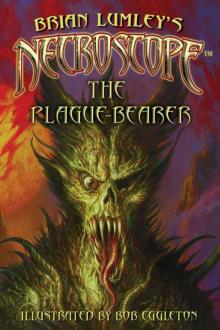 Necroscope: The Plague-Bearer
Necroscope: The Plague-Bearer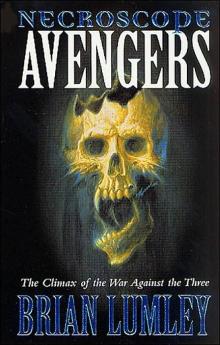 Necroscope: Avengers
Necroscope: Avengers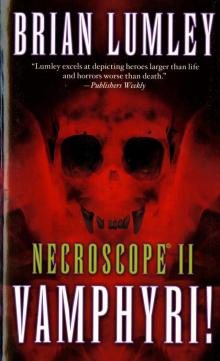 Necroscope II: Wamphyri
Necroscope II: Wamphyri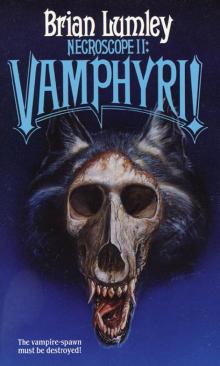 Necroscope II_Vamphyri!
Necroscope II_Vamphyri!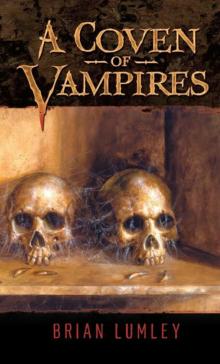 A Coven of Vampires
A Coven of Vampires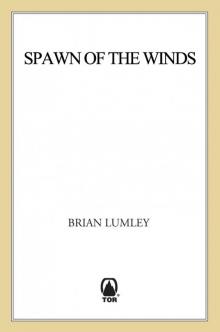 Spawn of the Winds
Spawn of the Winds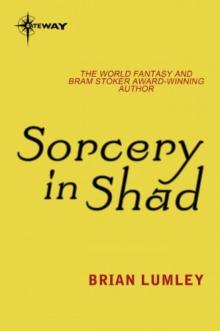 Sorcery in Shad
Sorcery in Shad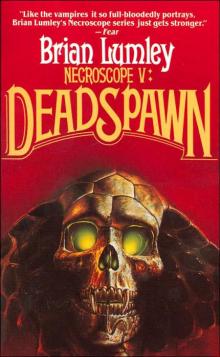 Deadspawn
Deadspawn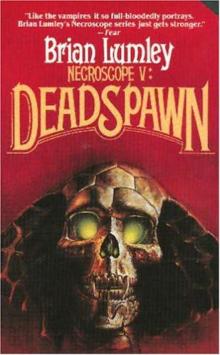 Necroscope V: Deadspawn n-5
Necroscope V: Deadspawn n-5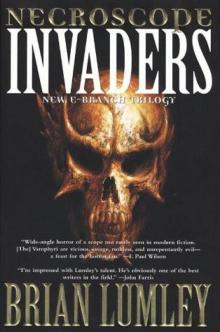 Necroscope: Invaders e-1
Necroscope: Invaders e-1![Beneath the Moors and Darker Places [SSC] Read online](http://i1.bookreadfree.com/i/03/20/beneath_the_moors_and_darker_places_ssc_preview.jpg) Beneath the Moors and Darker Places [SSC]
Beneath the Moors and Darker Places [SSC]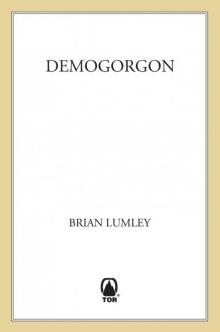 Demogorgon
Demogorgon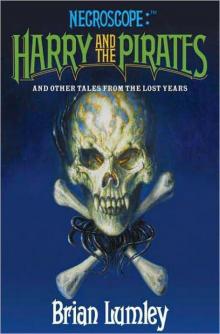 Harry and the Pirates_and Other Tales from the Lost Years
Harry and the Pirates_and Other Tales from the Lost Years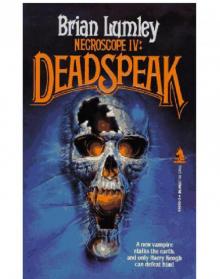 Necroscope IV: Deadspeak n-4
Necroscope IV: Deadspeak n-4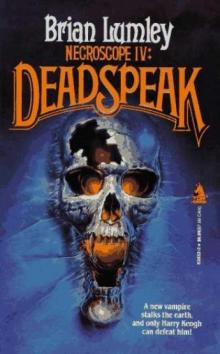 Deadspeak
Deadspeak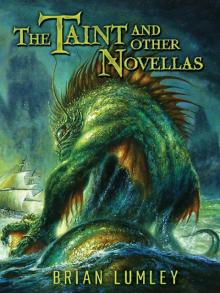 The Taint and Other Novellas
The Taint and Other Novellas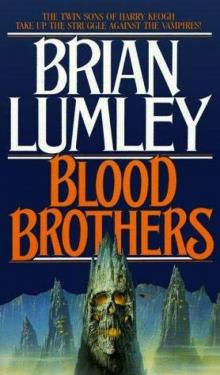 Blood Brothers vw-1
Blood Brothers vw-1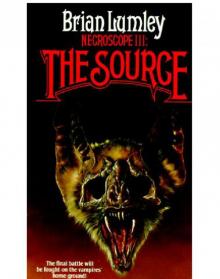 The Source n-3
The Source n-3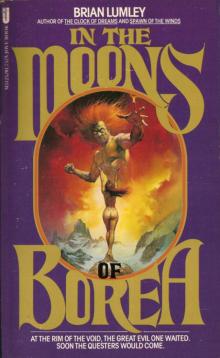 In the Moons of Borea
In the Moons of Borea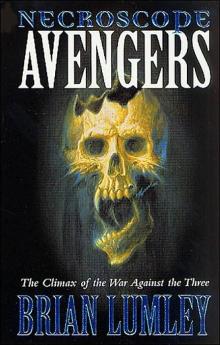 Avengers
Avengers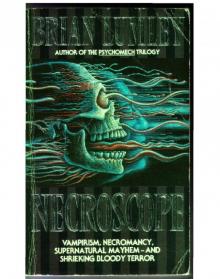 Necroscope n-1
Necroscope n-1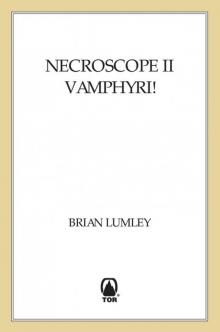 Vamphyri!
Vamphyri!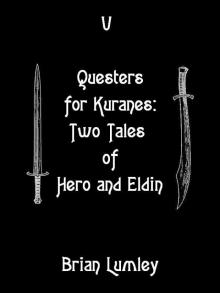 Questers for Kuranes: Two Tales of Hero and Eldin
Questers for Kuranes: Two Tales of Hero and Eldin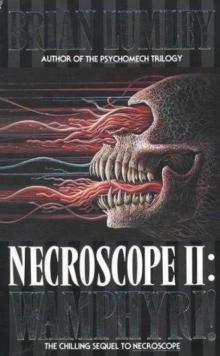 Necroscope II: Wamphyri! n-2
Necroscope II: Wamphyri! n-2 The Source
The Source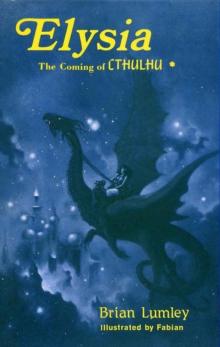 Elysia
Elysia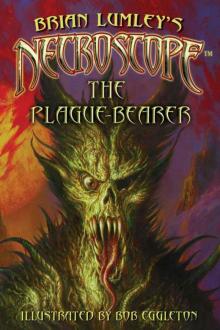 The Plague-Bearer
The Plague-Bearer The Touch
The Touch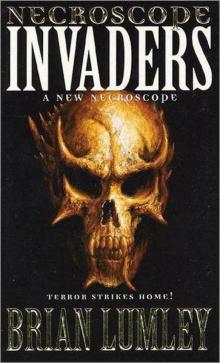 Invaders
Invaders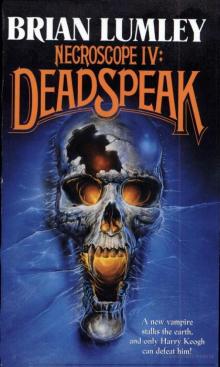 Necroscope 4: Deadspeak
Necroscope 4: Deadspeak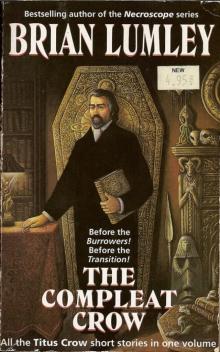 Compleat Crow
Compleat Crow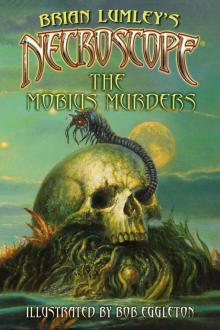 The Mobius Murders
The Mobius Murders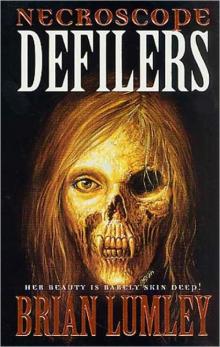 Defilers
Defilers